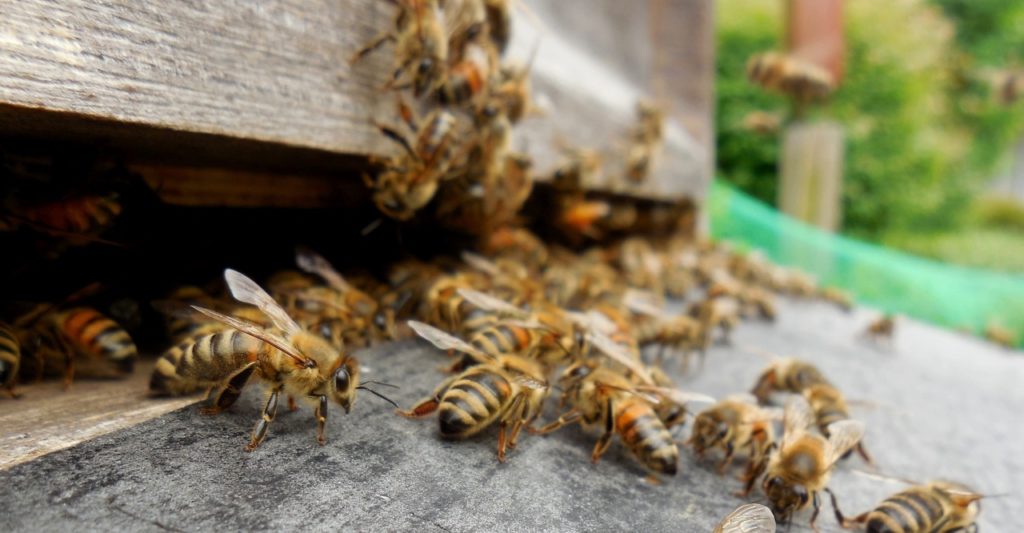Come springtime, the RTBF reports, the Brussels region’s environment agency Bruxelles Environnement will take up the beehives it manages at nature sites in Brussels, and remove them permanently.
The move forms part of a plan by the region to tackle the recent huge growth in members of the public keeping bees – a trend inspired by concerns about pollution, climate and biodiversity. Bees have become something of a mascot for this movement, in part because they are an excellent barometer of environmental conditions, and in part because of their crucial role in maintaining biodiversity.
But it’s possible to have too much biodiversity, and the honey bee – a variety essentially created by Man for Man – now represents a threat to its wild cousin.
“This is a contest for natural resources,” commented Nicolas Vereecken, professor of agro-ecology at the Brussels Free University ULB. Not only are kept honey bees far more numerous than wild bees, they also venture farther from the hive – up to one kilometre – which means they have a wider area in which to compete for food.
Amateur beekeepers, meanwhile, see no need for concern. In response to claims that hives owned by members of the public are proliferating, apiarist Yves Van Parys responds, “Over the last three years, according to our own count, there has instead been a reduction in the number of hives in Brussels, of the order of 30%.”
In any case, he says, hobbyist beekeepers are not the threat they are made out to be. “In Brussels, there are 200 or 300 apiarists with one, two or three hives at the bottom of the garden or in a nearby park,” he said. “we are not major producers of honey.”
But for Bruxelles Environnement and the ULB researchers, there can be no doubt that the wild bees – about 200 different species recorded in the region -- are being over-run.
“In a beehive, you have tens of thousands of individuals of the domestic bee species. In Brussels, the populations of wild bees are decidedly in the minority. We’re talking about a few dozen individuals for each species,” Prof. Vereecken said. “By definition, those that are supernumerary have a dominating effect.”
Alan Hope
The Brussels Times

